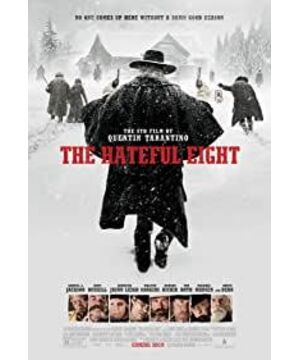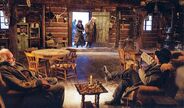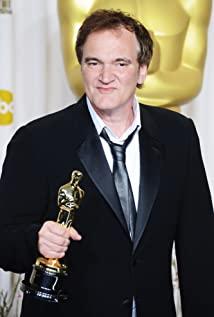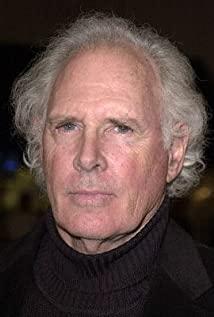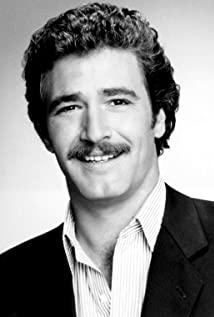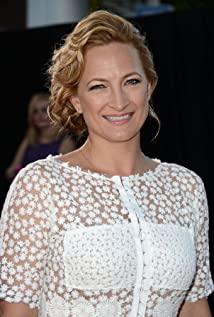Profession is related to religious beliefs, so the word "faith" is used in this film (not to mention beliefs, it means not wanting to be confused with religious beliefs) to locate the common theme of the evils of the eight evil men. Quentin specifically confessed to the title a picture of Jesus on the cross in the beginning of the film. This seems to be a stone carving of Jesus, or it has a meaning: white snow falls on it, but the picture of Jesus is dark, which is the same as our church. The face of Jesus seen in it doesn't quite match. If the interpretation of white is innocent and innocent, then the image of Jesus, which symbolizes faith (faith), is black instead, and this layer of meaning can be regarded as straightforward and clear.
In the film, both bounty hunters catch wanted criminals. The belief of the "gallows man" is the gallows and represents the country's legal system. Regardless of whether "dead or alive" is indicated on the reward list, he insists on bringing the prisoner back to the town alive. He believes that the "justice" he knows can only be achieved when he sees the criminal actually being sentenced to death. The result of the bullet is frontier justice and disrespect for the executioner (that is, the legal system). And the bounty hunter played by Samuel only took the prisoner's body back to town, but is this just "make work easier" as he himself said? From the subsequent dialogue, we can see that he was an anti-slavist who burned a concentration camp (even black compatriots), a self-awakened "insulted and victimized", and he was unfair to the world. The rebellion is shown as taking revenge for the white man with his hands. The last chapter is also a bit clear: "black man, white hell". His belief, or justice, is to kill those white people who "deserve their sins." The forged Lincoln’s letter and the part of the conversation between him and "The Hangman" at the dinner table was very interesting: The Hangman had never believed that the son of a certain rebel leader of the Southern faction who claimed to be a sheriff in red rock, but easily relied on a letter. The so-called Lincoln’s letter believes in black bounty hunters (this is not a problem of his lack of IQ, but what a person chooses to believe will affect his judgment). In the end, because of insisting on bringing the female prisoner back to town, he not only lost his own Life also affects the death of the innocent groom (I understand that the eight evil men do not include the groom and the sheriff: the eight evil men refer to the two bounty hunters, the old general, the female criminal, the female criminal’s brother and three accomplices). So the death of the groom," "The Hangman" is also to blame, and this is where the character is "evil by faith".
Needless to say, the female prisoner is one of a group of criminals who committed crimes. But her brother came to save her. , And the other three also have their own beliefs that they should have: the younger sister was taken by the bounty hunter and will be hanged. As the brother, the family is tied to the family, how can we not save it? Family love is the belief of the bandit, and "Suppose "Saving my sister by the bureau" is also justice as he knows, it has nothing to do with whether they are good or bad. And the three gangster brothers are willing to take risks, naturally for the brother's loyalty. This is also their belief to help the brothers to save their relatives. It is the "justice" in their eyes.
The sheriff should be the most interesting and interesting character in the film. At first, it seemed to have nothing to do with the two factions that were destined to meet and fight. Getting on the carriage is skillful and accidental, but in fact it is the key to the turning point of the plot. The detailed background of the black bounty hunter. The forgery of Lincoln’s letters was shared by him and the old general. However, as a descendant of the leader of the southern rebels, he did not judge his father’s actions to be respectable because he was right, but called it a " Lost cause", knowing that it cannot be done, so it is worthy of respect. Therefore, he does not believe in the idea of the southern faction. From the conversation with the bounty hunter, he does not have the belief that prisoners must be sentenced to death. He clears the entire film. He is an "outlier" and has no reason to offend or support any of them. In the end, the reason why he did not choose to compromise with the female offender was because the coffee poisoned the innocent groom, and the female offender did not stop when he was about to drink coffee. [Maybe imagine, what if he didn't have coffee at the time? What if the hangman did not stop him from drinking coffee? What if the female prisoner stopped him from drinking coffee (maybe unlikely)? And, in the end, how would he treat the injured black bounty hunter ($5w bounty). There is an existential tone here. A person who has no faith becomes himself in choosing to believe or not; and good and evil are in This choice of belief is full of contingency] In
summary, Quentin tells a story that is extremely horrifying in thought. People are willing to die or kill for the sake of belief (belief). This belief can be the difference between the north and the south, the color of the skin; it can also be the love of brothers and sisters; the righteousness of brotherhood; it can be the gallows or a letter. Whether it is life or death, killing or staying, it's all about "belief" or "unbelief." If Quentin pays attention to the visual impact of the violent aesthetics of violent blades in the early days, and then turns to the discussion of the conditions and effects of violence, then this film puts violence into the philosophy and belief system for some observation: this All the killings in the world are all dressed in the cloak of faith (faith). Once "justice" becomes violence in the name of "faith", it will be difficult to separate from evil. Behavioral violence is essentially the externalization of mental violence. The end of the film seems to explain that when any superficial justice executes violence, there is always a pair of black hands behind it—here white hell no longer refers to the literal white hell, but the hell of justice and kindness.
View more about The Hateful Eight reviews


